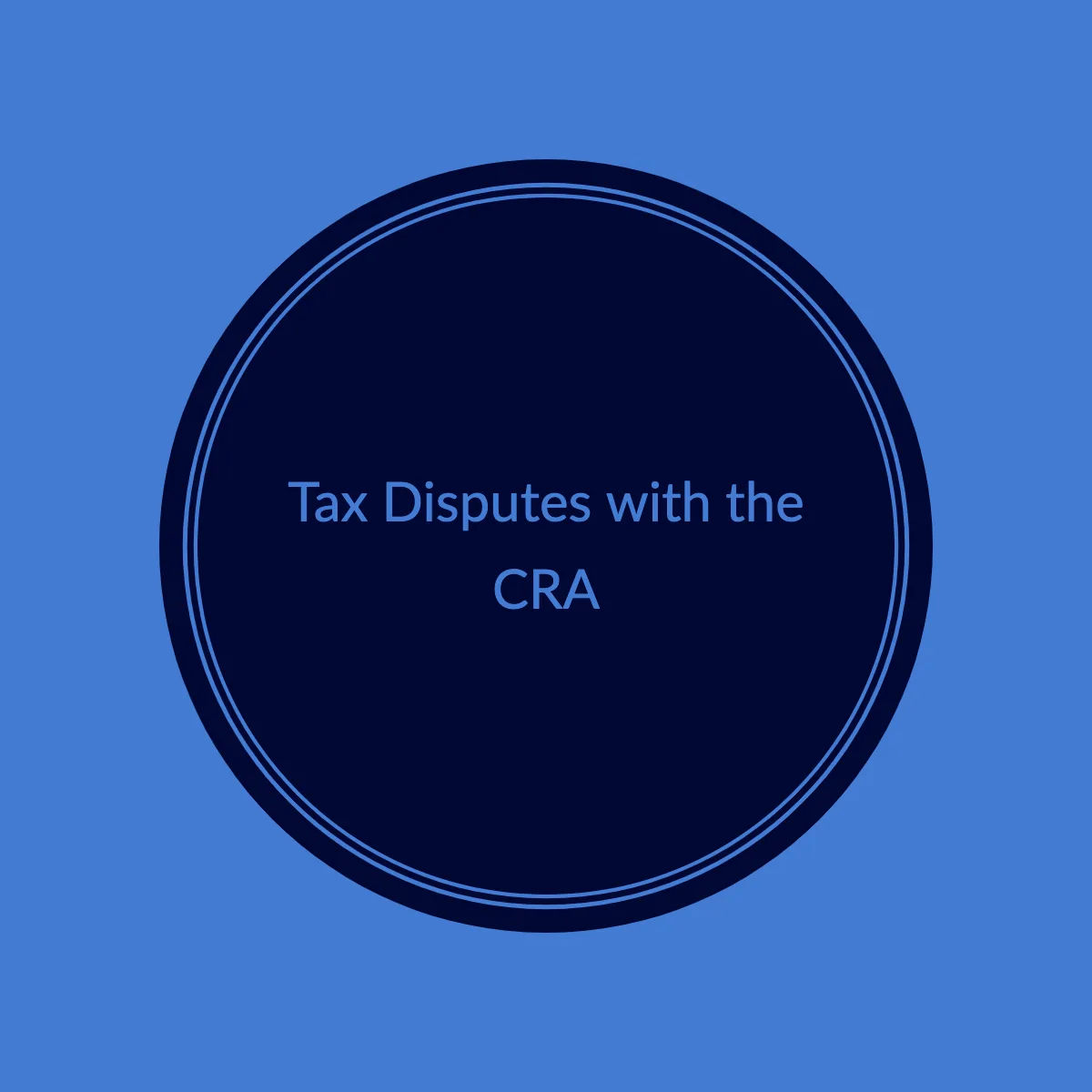Introduction:
Dealing with the Canada Revenue Agency (CRA) can be a complex and daunting task, especially when it comes to income tax assessments and determinations. However, as a taxpayer in Canada, you are entitled to fair treatment in all your interactions with the CRA. This includes the fundamental right to formally review your income tax assessment or determination. The CRA has outlined these rights in its “Taxpayer Bill of Rights.” In this publication, we’ll provide you with an overview of what to do if you find yourself disagreeing with your income tax assessment or determination and wish to initiate a formal dispute. Understanding Your Assessment: Before diving into the process of filing an objection, it’s crucial to have a clear understanding of your income tax assessment. If you’re unsure about the details of your assessment, take a moment to review the section titled “Before Filing an Objection for More Information.” This will help you gather the necessary background knowledge to proceed. Scope of This Publication: It’s important to note that this publication specifically addresses objections under the Income Tax Act (ITA). If you’re dealing with objections related to other matters or appeals, you should refer to the section titled “Appealing to the Courts.” The publication focuses on how to appeal a CRA decision concerning an objection under the ITA. Requesting Documents: If you require copies of any documents related to your tax assessment or determination, you can easily obtain them by calling the CRA at 1-800-959-8281. Having access to these documents is essential as you navigate the objection process. A Guide, Not Legal Advice: Keep in mind that this publication serves as a guide to help you understand the objection process. For more detailed and technical information, you should refer to the Income Tax Act, the Tax Court of Canada Act, and the Federal Courts Act. These documents contain in-depth legal information that may be pertinent to your case. Resolving Disputes: For a comprehensive resource on resolving disputes with the CRA, we recommend visiting the official CRA webpage dedicated to objections and appeals at canada.ca/cra-objections-appeals. Here, you can find additional information, resources, and tools to assist you in navigating the dispute resolution process effectively. Important Note: Throughout this publication, any reference to assessments also encompasses reassessments, while any mention of determinations includes redeterminations. The rights of objection and appeal that apply to assessments and reassessments equally apply to determinations and redeterminations. These rights pertain to various matters, including but not limited to:- Canada Child Benefit
- GST/HST Credit
- Disability Tax Credit
- Loss Determination
Appeals Branch Mandate:
The Appeals Branch of the Canada Revenue Agency (CRA) plays a pivotal role in ensuring that taxpayers have access to a fair and effective recourse process when disputes or relief requests arise. Here, we delve into the mandate and objectives of the Appeals Branch, shedding light on their commitment to delivering high-quality services and promoting voluntary compliance.
1. Delivering High-Quality Recourse Services: The primary mission of the Appeals Branch is to deliver recourse services of the highest quality. This involves providing taxpayers with an avenue to dispute assessments, determinations, or relief requests in a manner that is both efficient and fair. By upholding the principles of equity and fairness, the Appeals Branch aims to ensure that taxpayers receive the consideration they deserve.
2. Timely Resolution of Disputes: Timeliness is of paramount importance in the tax and benefit landscape. The Appeals Branch is dedicated to ensuring that disputes are addressed promptly. Timely resolution not only reduces uncertainty for taxpayers but also contributes to the smooth functioning of the tax system as a whole.
3. Impartiality as a Core Principle: Impartiality is a cornerstone of the Appeals Branch’s operations. It is essential that all reviews and assessments are conducted in an entirely impartial manner. This means that taxpayers can expect a fair, unbiased evaluation of their cases, free from any undue influence.
4. Promotion of Early Issue Resolution: One of the key objectives of the Appeals Branch is to promote the prevention and earliest possible resolution of tax and benefit issues. This proactive approach benefits both taxpayers and the CRA. Early issue resolution minimizes the need for formal disputes, saving time and resources for all parties involved.
5. Engaging in Dialogue with Taxpayers: Open and constructive dialogue is encouraged between the Appeals Branch and taxpayers. By actively engaging with taxpayers, the Appeals Branch can better understand their concerns and provide more effective recourse services. This communication also aids in clarifying complex tax issues.
6. Collaboration with the Department of Justice: In cases where litigation becomes necessary to resolve disputes, the Appeals Branch collaborates closely with the Department of Justice. This collaborative approach ensures that court cases are conducted efficiently and effectively, upholding the principles of justice and fairness.
7. Promoting Voluntary Compliance: A responsive redress process plays a pivotal role in promoting voluntary compliance among taxpayers. When taxpayers believe that their concerns are being heard and addressed through fair and transparent procedures, they are more likely to voluntarily comply with tax laws and regulations. Trust in the integrity of the CRA is paramount in fostering this compliance.
In conclusion, the Appeals Branch of the CRA operates with a clear mandate: to provide taxpayers with a fair and impartial process for resolving disputes and relief requests. Their commitment to high-quality, timely, and equitable services is essential for maintaining trust in Canada’s tax system. By actively engaging with taxpayers and promoting voluntary compliance, the Appeals Branch contributes to a tax environment that benefits both individuals and the nation as a whole.



Leave a Reply